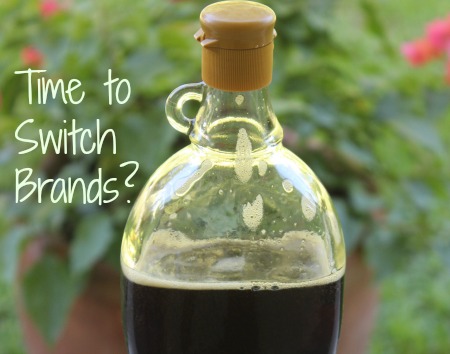 Maple syrup is a traditional and whole sweetener that has consistently played an integral part of the economies of North America ever since Native Americans first taught the early European settlers how to tap maple trees and boil down the sap to make this homely sweetener. Maple syrup derived early in the season at the time of the spring thaw runs sweet and clear. It is tapped from maple trees in a process similar to the making of birch water in Slavic countries.
Maple syrup is a traditional and whole sweetener that has consistently played an integral part of the economies of North America ever since Native Americans first taught the early European settlers how to tap maple trees and boil down the sap to make this homely sweetener. Maple syrup derived early in the season at the time of the spring thaw runs sweet and clear. It is tapped from maple trees in a process similar to the making of birch water in Slavic countries.
It takes about 20-30 gallons of boiled down maple tree water to make one gallon of light amber colored syrup, labeled as Grade A.
Late in the season, maple sap thins out even more. Much more than 20-30 gallons of sap must be boiled down to yield syrup of equal sweetness. Boiling down more sap to concentrate the sweetness also concentrates the flavor and nutrients.
This late season syrup is darker, more maple flavored, and higher in minerals than the Grade A syrup and is currently labeled as Grade B.
The blander, lighter syrup typically commands the highest price as consumers tend to prefer sweetness without too much flavor.
Consumers in the know, however, choose the Grade B syrup for the higher mineral and nutritional content. These savvy consumers have long enjoyed lower prices for the Grade B product, but this may be at an end.
New international standards for labeling maple syrup have come into effect such that Grade B is no longer used. The new system for categorizing maple syrup is designed with the express purpose of eliminating discrimination against the darker syrup.
As a result, all maple syrup is now Grade A with four identifying colors: Golden, Amber, Dark, and Very Dark.
With all syrups labeled the same, equality in pricing is the anticipated result.
So, stock up on cheaper, darker Grade B if you still can. Once the inferior Grade B is removed from the label, this most flavorful and nutritious of syrups will be commanding a higher price much the same as the lighter colored, blander, and more plentiful syrup.
An important thing to also know is the very different production practices between conventional and organic maple syrup. The linked article details these differences that will likely have educated consumers switching brands in a hurry!
For more on whole, nutritious sweeteners, check out my video and article on which sweeteners are best and be sure to check out vetted producers on my shopping recommendations guide.
Sarah, The Healthy Home Economist
Source: Making the Grade: Why the Cheapest Maple Syrup Tastes Best








Please note the part about the international standards coming to bear on this – this is Agenda 21 hitting us. Same for the animal ID scheme – they are putting a 15 digit ISO number on each animal. We are being drug into an international community and our national sovereignty is being done away with…as are our independent freedoms, rights and liberties (such as the right to own private property). The food “safety” bill that was passed into law during the lame duck session last fall (passed unanimous in the Senate the second time around) gives control of ALL food to the head of the FDA and international guidelines are being implemented. Welcome to the Borg…it’s called the One World Government.
Bye Bye Grade B Maple Syrup – The Healthy Home Economist http://t.co/rLaDb5XP
Oh wow we have always bought grade B.
Good to know. Tell mom!
The food industry wants all food to be the same. They do not want anyone to have an alternative to the inferior products they produce. This move to treat all maple syrup as one grade is just another move in this direction.
couldn’t afford it before…. sure can’t now.
Wow I never understood the “grading” of maple syrups so thanks for the info! I checked my fridge and thankfully I had bought Coombs Family Farms organic maple syrup (grade B)! Yeah!
Already about the same price as grade A dark around here (grade B tastes burned to me). Any thoughts on whether it’s important to buy organic maple syrup? Or if it’s one of the few items I don’t need to worry about as much?
I doubt organic is an issue, since it’s not a spray crop. You’d have to check, but I’d also be surprised if there were chemicals used for filtration. No other inpacts of organic designation seem to apply – but if someone knows for sure, I’d be interested to learn more!
You are supposed to keep opened maple syrup in fridge? Oops
I don’t keep mine in the fridge and have never had a problem. Cool dark place, yes, but never the fridge.
Go Figure!! We just started buying grade B….this is ridiculous